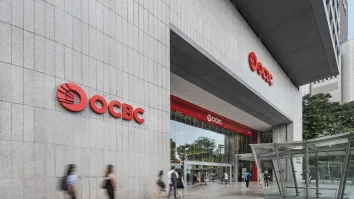Afterpay floats Asia, Europe expansion plans
It said its full-year loss has more than halved compared to last year.
Australian buy now pay later (BNPL) service Afterpay is planning to expand to at least three continents, riding on the sector’s growing popularity, reports Reuters.
Afterpay has said that its full-year loss had more than halved, but an online shopping boom triggered by the pandemic fueled growth in the BNPL sector and helped to turn Afterpay into one of Australia’s 20 most valuable stocks.
The firm said it will buy a Singapore-based BNPL, EmpatKali, which operates in Indonesia, that would help it drive into Asia.
This follows its publicised European expansion plans, which would see Afterpay enter Spain, France, Italy and possibly Portugal with regulatory approvals in place.
Afterpay reported a loss of $16.5m (A$22.9m) for the year ended 30 June, compared with a loss of $31.6m (A$43.8m) a year earlier.
Here's more from Reuters.



















 Advertise
Advertise











